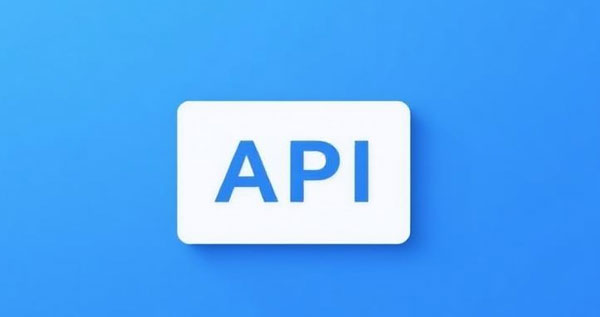Building a New E-commerce Engine with Douyin API: A Practical Guide to Short Video Marketing and Sales Conversion
In recent years, short video platforms have rapidly evolved into the next-generation traffic portals for e-commerce. Especially platforms like Douyin are reshaping how brands market and how consumers make purchasing decisions. The key challenge for every e-commerce brand and marketing team is how to effectively integrate Douyin data to achieve accurate recommendations, content seeding, and sales conversion.
1. Why Use Douyin API to Empower E-commerce?
Unlike traditional e-commerce backends that only offer transaction data, Douyin API allows direct access to upstream user behavior data, including:
Views, likes, comments, shares: Reveal the popularity of content
Completion rate, engagement rate: Indicate the appeal and stickiness of the content
Creator information, fan profiles: Identify potential influencers for collaboration
Trending topics, regional distribution: Capture emerging traffic patterns
Having access to these datasets enables more scientific and efficient decision-making across product recommendations, content creation, influencer partnerships, and ad placements.
2. Core Use Case 1: Precision Product Recommendation
1. Tagging Content Based on Interaction Data
With the LuckData API, you can bulk fetch hot video data under specific product categories or topics and tag them with keywords. Example Python script:
import requestsAPI_KEY = 'your_luckdata_key'
BASE_URL = 'https://luckdata.io/api/douyin-API/get_pa29'
def get_video_detail(item_id):
headers = {'X-Luckdata-Api-Key': API_KEY}
params = {
'type': 'items,cnt,trends,author',
'item_id': item_id
}
resp = requests.get(BASE_URL, headers=headers, params=params)
return resp.json()
video_info = get_video_detail('7451571619450883355')
tags = video_info['data']['items'][0]['tags'] # Assuming API returns video tags
print("Extracted tags:", tags)
By clustering tags from tens of thousands of videos, you can create a proprietary content profiling system. This enables product recommendations based on actual user interests rather than relying solely on traditional category matching.
2. Personalized Content Delivery
By matching content tags with user interest data (e.g., browsing history, liked video tags), you can implement a highly personalized recommendation system. For instance, users who frequently watch fitness-related content can be prioritized for promotions of new sports gear.
3. Core Use Case 2: Optimizing Live Commerce Conversion
Douyin API can also analyze the popularity of videos or clips related to livestreams, allowing better scheduling and script optimization. Key strategies include:
Keyword extraction: Analyze commonly used keywords in comments of livestream-related videos to enhance livestream scripts
Time trend analysis: Identify peak active hours of your target audience for better scheduling
Dynamic product window adjustment: Optimize the order of product display during livestreams based on real-time product popularity
Example: Fetching Trend Data of Livestream Topics
import requestsdef get_trend_data(topic_id, start_date, end_date):
headers = {'X-Luckdata-Api-Key': API_KEY}
url = f'https://luckdata.io/api/douyin-API/get_xv5p?type=trends&topic_id={topic_id}&start_date={start_date}&end_date={end_date}'
resp = requests.get(url, headers=headers)
return resp.json()
trend = get_trend_data('123456', '20250101', '20250107')
print("7-day trend data:", trend['data'])
Visualizing trend curves enables the team to anticipate engagement levels before each livestream, reducing the risk of poor performance and improving conversion rates.
4. Core Use Case 3: Optimizing Influencer Collaboration Strategy
Before working with influencers, it's critical to evaluate their true selling power. Douyin API provides better indicators than mere follower count, such as:
Average video views and engagement rates
Comment sentiment analysis (positive vs. negative ratio)
Completion and conversion rates of past promotional videos
With LuckData's high-speed data extraction capabilities, you can quickly shortlist high-ROI influencers, minimize risks, and maximize marketing efficiency.
5. Technical Implementation Tips and Considerations
Incremental Data Fetching
Only fetch newly published videos from the past 24 hours daily to save API credits and maintain data freshness.Outlier Filtering
Exclude videos with suspiciously high metrics (e.g., bot traffic) using thresholds to ensure data accuracy and model quality.Data Compliance
Strictly follow Douyin's API usage guidelines and LuckData's policies to ensure legal, transparent, and ethical data practices.
Conclusion
Short videos are no longer just content carriers—they are becoming the new traffic engines for e-commerce systems. With the Douyin API provided by LuckData, you can turn content popularity and user interests into actionable data models to improve every stage of your operation—from product recommendation to livestream planning and influencer collaboration.
In the data-driven e-commerce landscape, those who control the data will control growth. If you're looking to integrate Douyin data applications into your business quickly, LuckData offers a complete solution from free trial to enterprise support—empowering every content decision and sales conversion.
Articles related to APIs :
Best Practices for Optimizing Douyin API Requests in High-Concurrency Scenarios
Comprehensive Guide to Douyin API: The Best Solution for Efficient Data Scraping
How to Use Douyin API for Market Analysis and Competitor Research
Free Application for Douyin API: A Detailed Guide and Usage Tips
Douyin API: Core Functions, Application Scenarios, Technical Details, and Ecosystem Insights




